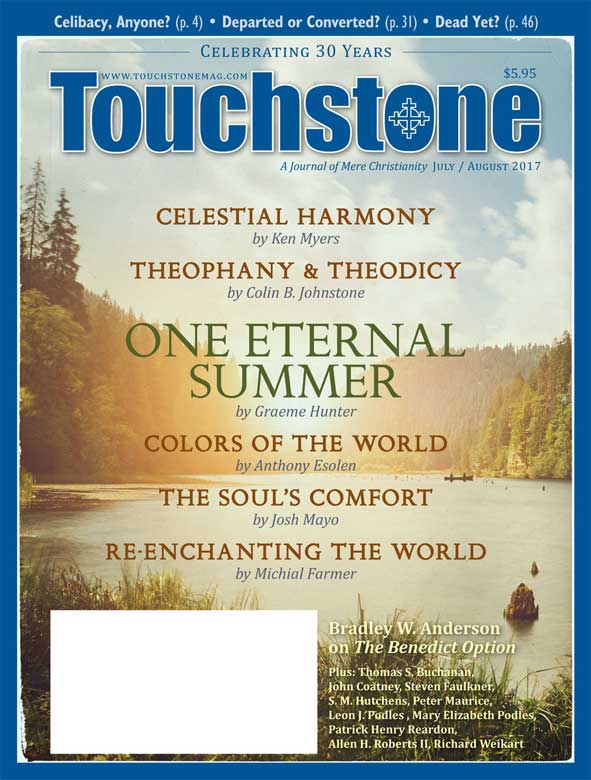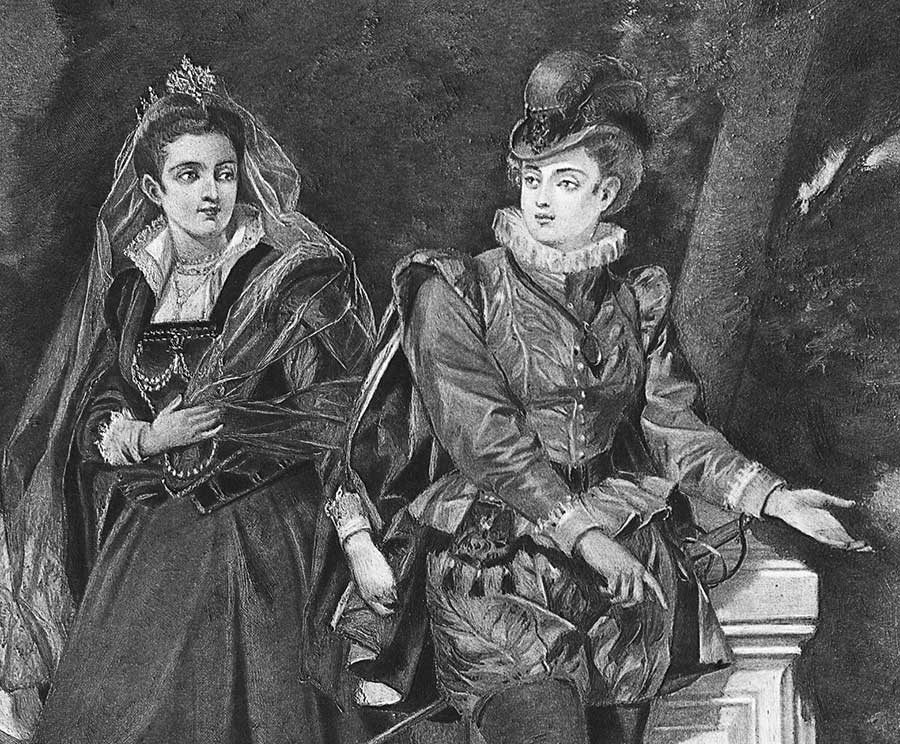View
Soul Comforter
Josh Mayo on Emily Dickinson & the Source of Our Hope
Hope is a tenacious creature. Like the poppy that bursts from the curbside, like the finch that hangs its nest in the glacier, hope is an extremophile. The weight of pedestrian life does not crush it; the chill of the remote does not freeze it. But how? And why? What can explain the human soul's insistent and persistent hope against titanic odds? That conundrum is the subject of Emily Dickinson's poem #314:
"Hope" is the thing with feathers –
That perches in the soul –
And sings the tune without the words –
And never stops – at all –And sweetest – in the Gale – is heard –
And sore must be the storm –
That could abash the little Bird
That kept so many warm –I've heard it in the chillest land –
And on the strangest Sea –
Yet – never – in Extremity,
It asked a crumb – of me.
In lyric poetry, I know of no better psychology of human optimism than this one. Dickinson captures hope's strangeness, the paradox of the birdsong that rings "sweetest – in the Gale." Hope is an enigma: it "perches in the soul," and many take comfort from its music, but do not know why. Hope is a "thing with feathers," an unclassified bird, beautiful and elusive, hidden in those green folds of the soul's private jungle. It hums the melody of a forgotten rhyme, a song we used to know, a "tune without the words." What is the text of this ancient, abiding song of hope? What is this mysterious music of the inner country?
Two Popular Hopes
Our culture has its own music. There are two popular hopes, two songs of optimism, sung by our contemporaries: what we might call the Song of Progress and the Song of Karma. The first pertains to collective hope, the second to that of individuals. It is better not to think of these songs as formally systematized philosophies, but as popular cultural narratives, stories we tell ourselves about ourselves and our standing in the world—songs that, I think, fail to give us real hope.
In its crudest form, the Song of Progress is the belief that, through social and technological evolution, everything is getting better and better. Upward we go on the dialectical staircase. Higher and higher on the Hegelian spiral. Of course, there is nothing wrong with progress per se, but when social evolvement becomes a telos or an end in itself, notes go out of concert. Cacophony ensues. As Richard Weaver once observed, the "notion of infinite progress" is more than metaphysical jabberwocky; it is actually a destructive idea:
If the goal recedes forever, one point is no nearer it than the last. All that we can do is compare meaninglessly yesterday, today, and tomorrow. Aristotle noted that the concept of infinity makes impossible the idea of the good. If a series of things is hierarchically ordered, it is conditioned from top to bottom and so cannot be infinite. If it is infinite, it cannot be conditioned from top to bottom, and there is no higher and lower.
Not only is infinite progress nonsensical, it makes impossible any vision of cosmic order. Without a telos, there can be no hierarchy. And what kind of hope can one have in a world like that, a world without an "idea of the good"? Even the wintry pessimism of the Norse myths is preferable to this. Even Ragnarök is better than a cosmos without coordinates.
Josh Mayo teaches in the English Department and Writing Program at Grove City College and has written for other publications of Christian thought, including First Things. He and his wife Bethany have two sons, Ezra Wallis and Silas Andrew, and attend Grace Anglican Church in Slippery Rock, Pennsylvania.
subscription options
Order
Print/Online Subscription

Get six issues (one year) of Touchstone PLUS full online access including pdf downloads for only $39.95. That's only $3.34 per month!
Order
Online Only
Subscription

Get a one-year full-access subscription to the Touchstone online archives for only $19.95. That's only $1.66 per month!
bulk subscriptions
Order Touchstone subscriptions in bulk and save $10 per sub! Each subscription includes 6 issues of Touchstone plus full online access to touchstonemag.com—including archives, videos, and pdf downloads of recent issues for only $29.95 each! Great for churches or study groups.
Transactions will be processed on a secure server.
more on literature from the online archives
more from the online archives
calling all readers
Please Donate
"There are magazines worth reading but few worth saving . . . Touchstone is just such a magazine."
—Alice von Hildebrand
"Here we do not concede one square millimeter of territory to falsehood, folly, contemporary sentimentality, or fashion. We speak the truth, and let God be our judge. . . . Touchstone is the one committedly Christian conservative journal."
—Anthony Esolen, Touchstone senior editor













